Discover The Opus
The Opus

 The Opus
The Opus
Author: Consequence Podcast Network
Subscribed: 233Played: 10,104Subscribe
Share
© Consequence Podcast Network
Description
Consequence and Sony bring you an exploration of iconic albums and their ongoing legacy. Join host Adam Unze as he examines how masterpieces continue to evolve: shaping lives, shaking rafters, and ingraining themselves into our culture. Maybe you’re a longtime fan who wants to go deeper. Maybe you’re a first-time listener curious to hear more. Either way, you’re in the right place.
89 Episodes
Reverse
While Billy Joel’s last studio album was released on August 10th, 1993, it was The Stranger that catapulted him to the iconic, internationally renowned venue he is happy to call home: Madison Square Garden. He first played there in 1978 and has since played there a record-shattering 133 times. Playing MSG is an accomplishment for any artist, but Joel's legacy includes selling out the iconic venue every month since 2014 -- and that's just part of what makes Billy Joel such a legend.On Episode 4 of The Opus: The Stranger, we close out the season by taking a look at what came next for Joel after The Stranger: his incredible 50+ year career, his history-making residency at Madison Square Garden, and the enormous impact he’s had on his fellow musicians.Presented by Consequence Podcast Network and Sony Legacy, host Adam Unze speaks with Regina Spektor, Ben Folds, Bayside's Anthony Raneri, Rozzi, The Arkells' Anthony Carone, Billy Joel's biographer Fred Schruers, Ken Weinstein, and Andrew McMahon and the WildernessKeep up to date with what's next from The Opus by liking, reviewing, and subscribing wherever you get your podcasts. You can also stream and download The Stranger here, and relive Joel's 1990 concerts at Yankee Stadium with the recently released Live at Yankee Stadium. To catch a more modern Joel concert -- including his co-headlining tour with Stevie Nicks -- get tickets here.Fans of The Opus can show their love with an official Opus hoodie or T-Shirt, available now at the Consequence Shop.Advertising Inquiries: https://redcircle.com/brandsPrivacy & Opt-Out: https://redcircle.com/privacy
Many classic albums have their share of hits, but Billy Joel’s The Stranger is simply full of them. How did this happen in just about three weeks? The truth is none of the songs' paths overlapped and truths are often stranger than fiction. On Episode 3 of The Opus: The Stranger, we explore each of these classic tunes to discover what made them such lasting contributions to American music.Presented by Consequence Podcast Network and Sony Legacy, this new episode digs into six of the album's classics with the help of archival interviews from the Billy Joel and producer Phil Ramone, plus host Adam Unze speaks with Regina Spektor, Ben Folds, Bayside's Anthony Raneri, The Arkells' Anthony Carone, and Andrew McMahon and the WildernessYou can keep up with the rest of Season 19 by liking, reviewing, and subscribing to The Opus wherever you get your podcasts. You can also stream and download The Stranger here, and relive Joel's 1990 concerts at Yankee Stadium with the recently released Live at Yankee Stadium. To catch a more modern Joel concert -- including his co-headlining tour with Stevie Nicks -- get tickets here.Fans of The Opus can show their love with an official Opus hoodie or T-Shirt, available now at the Consequence Shop.Advertising Inquiries: https://redcircle.com/brandsPrivacy & Opt-Out: https://redcircle.com/privacy
The Stranger wasn't only Billy Joel’s critical breakthrough, but it was the start of a decade-long creative partnership with producer Phil Ramone. Together, the two created some of the most lasting songs in music, and it all began with those first sessions in the summer of 1977.Joel had a specific vision for what would be his fifth studio album, and that meant finding the right person to work the boards. It wasn't until Ramone -- known then for hits like "It's My Party" in the '60s and working with Paul Simon in the '70s -- expressed his enthusiasm for working with Joel's touring band that the Piano Man knew he'd found his producer.Together, they captured the energy of a Billy Joel concert on tape, with Joel's band pounding away live in studio (leading to utterly in-the-room sound leakage). Add in Ramone's innovative recording techniques, and they were able to fully realize the sound that had always been in Joel's head. It was a collaborative environment that allowed the best of everyone to come out and led to one of the best albums in the history of music.Presented by Consequence Podcast Network and Sony Legacy, Episode 2 of The Opus: The Stranger explores how working with Ramone allowed Joel to ascend to a new level of legend. In addition to archival interviews from the two icons, host Adam Unze speaks with Ben Folds, Joel's drummer Liberty DeVito, Arkells' Max Kerman, Andrew McMahon and the Wilderness, and Rozzie.Keep up with the rest of Season 19 by liking, reviewing, and subscribing to The Opus wherever you get your podcasts. You can also stream or download The Stranger here, and check out the recently released Live at Yankee Stadium, capturing Joel’s 1990 two-night stand at famed stadium.Fans of The Opus can show their love with an official Opus hoodie or T-Shirt, available now at the Consequence Shop. Snag tickets to Joel's upcoming concerts, including a 2023 co-headlining tour with Stevie Nicks, here.Advertising Inquiries: https://redcircle.com/brandsPrivacy & Opt-Out: https://redcircle.com/privacy
The Stranger was Billy Joel's fifth album, but in some ways, it felt like his debut because it’s the album that catapulted him to superstardom. Before its release, he’d had a radio hit with "Piano Man," but his genius was hampered by a string of overly slick producers who didn’t connect with his musical vision. But all that started to change leading up to The Stranger. With no hits to his name, his own wife as a manager, and a refusal to work with big-name producers, Joel finally had a chance to make an album on his own terms. Then came a performance at Carnegie Hall, and soon after, a meeting with Phil Ramone, the producer that finally understood what Billy was trying to do. With Joel's insistence on bringing his touring band into the studio and Ramone on his side, The Stranger finally began falling into place.On Episode 1 of The Opus: Billy Joel's the Stranger, host Adam Unze takes a look at the groundwork for what was to come, going through the history of Billy Joel's first four records to his landmark performances at Carnegie Hall, meeting Phil Ramone, and finally finding a recording process that gave him creative freedom and the ability to capture the magic of his live band. On this debut episode, you'll hear archival interviews with Billy Joel and mega-producer Phil Ramone, plus a fresh discussion with Joel's long-time drummer Liberty Devitto,Please and make sure to like, review, and subscribe to The Opus wherever you get your podcasts for updates on the new season from Consequence Podcast Network and Sony Legacy.For more from Billy Joel, stream or download the The Stranger here, and also check out the recently released Live at Yankee Stadium, capturing Joel’s 1990 two-night stand at the iconic venue. You can also snag tickets to Joel's upcoming concerts, including a 2023 co-headlining tour with Stevie Nicks, here.Fans of The Opus podcast can also pick up an official Opus hoodie or T-Shirt at the Consequence ShopAdvertising Inquiries: https://redcircle.com/brandsPrivacy & Opt-Out: https://redcircle.com/privacy
The Opus returns this holiday season with a true gift for music fans. Season 19 of the hit music history podcast from Consequence Podcast Network and Sony Legacy is set to celebrate the 45th anniversary of the album that made Billy Joel a world renowned star: The Stranger.The new season premieres on Thursday, December 22nd, with new episodes of the four-part season arriving every Thursday after that, concluding with Episode 4 on January 12th, 2023.To keep up with The Opus: The Stranger, subscribe now to be notified when each new episode drops, and also revisit our 18-season archive. Also pick up an official Opus hoodie or T-Shirt at the Consequence Shop.Advertising Inquiries: https://redcircle.com/brandsPrivacy & Opt-Out: https://redcircle.com/privacy
To close out this season of The Opus podcast, we explore how all the reasons Alice in Chains’ Dirt is considered such a classic album -- its place in the '90s Seattle scene, unique sonics, deeply personal lyrics. -- have folded into a lasting legacy for this iconic collection that continues to impact music to this day.As the ‘90s grunge bubble burst, a new crop of bands emerged wearing their Dirt love on their sleeves. The Seattle sound gave birth to alt-rock radio, but AIC’s harder edge continued to have a presence across the charts. The band's influence can be heard throughout the rock sub-genres that have appeared over the last 30 years and in the generations of musicians that has followed. Acts as disparate as Godsmack and Alter Bridge have cited Dirt as a major inspiration, cementing its place as one rock’s most important albums.It takes a special kind of magic to maintain that hold on the cultural conversation, and it's that legacy that we explore on the season finale of The Opus: Alice in Chains' Dirt. Joining host Adam Unze in this discussion of AIC's lasting influence on the charts and their fellow musicians are Mastodon's Bill Kelliher, Anthrax's Charlie Benante, City and Colour's Dallas Green, Alter Bridges' Myles Kennedy and Mark Tremonti, Tetrarch's Diamond Rowe, and GOON's Kenny Becker.Listen to the final episode of this season of The Opus now wherever you get your podcasts. For updates on the next season of the podcast, make sure to like and subscribe to the show, and drop a review if you liked our deep dive into Dirt.Be sure to check out the Consequence Podcast Network for information on all our shows, and snag an official Opus hoodie or T-shirt at the Consequence Shop or via the buy-now buttons below. You can also grab a copy of Dirt in physical and digital formats here.Advertising Inquiries: https://redcircle.com/brandsPrivacy & Opt-Out: https://redcircle.com/privacy
This season on The Opus: Alice in Chains' Dirt, we've looked at how the band went against the grain of the Seattle scene and how they set themselves apart with their unique compositional approach. Now we peel back perhaps the most powerful layer of, Dirt: its dark, personal lyricism.Alice in Chains’ Layne Stayley and Jerry Cantrell packed Dirt with deeply personal lyrics full of emotional weight. The lyrics read like journal entries, telling stories about the horrors of war, mental health struggles, intra-band conflict, and other heavy topics. And yet the songs' confessional poetry leaves ample room for interpretation, allowing fans to reexamine the words as they bend the meanings to reflect events in their own lives.In Episode 3 of The Opus: Dirt, we deconstruct the lyrical genius of Dirt, discovering the ways in which the songwriters channeled their most private struggles into their very public lyrics. Joining host Adam Unze this week are Alter Bridge's Myles Kennedy and Mark Tremonti, Papa Roach's Jacoby Shaddix, Dallas Green of City and Colour, Anthrax's Charlie Benante, and Airbourne's Joel O'Keeffe.Listen to this episode now, and don't forget to like and review The Opus and subscribe wherever you get your podcasts to be notified of each new episode of Season 18. Make sure to check out the Consequence Podcast Network for information on all our shows.Fans of The Opus can also pick up an official Opus hoodie or T-shirt at the Consequence Shop.Advertising Inquiries: https://redcircle.com/brandsPrivacy & Opt-Out: https://redcircle.com/privacy
When you think of the Seattle Sound, certain sonic hallmarks likely come to mind. As we explore in Episode 2 of The Opus: Dirt, however, Alice in Chains occupied a unique space in this musical landscape.The band didn't ease its fans into the sound of Dirt. The opening notes of "Them Bones" jolt you directly into an aggressive energy and there’s barely room to catch your breath over the length of the LP. But at the heart of this sensory assault lies an intricate web of virtuoso musicianship and dynamic vocal harmonies. The chunky, muscular guitar riffs and multi-layered vocals created a sound that spurred a generation of imitators.On this episode of the music history podcast The Opus: Alice in Chains' Dirt, host Adam Unze dives into the unique backstory of the album's composition and discovers why its particular musical alchemy set it apart from the other monster hits of the grunge scene. Joining him on the journey are Baroness' Gina Gleason, Anthrax drummer Charlie Benante, City and Colour musician Dallas Green, Layne Ulrich of Taipei Houston (and son of Metallica drummer Lars Ulrich), and Goon's Kenny Becker and Andy Polito.Don't forget to like, review, and subscribe wherever you get your podcasts to be notified of each new episode of Season 18. Also, check out the Consequence Podcast Network for information on all our shows.Fans of The Opus can also pick up an official Opus hoodie or T-shirt at the Consequence Shop.Advertising Inquiries: https://redcircle.com/brandsPrivacy & Opt-Out: https://redcircle.com/privacy
Alice in Chains are seen as one of the bands that helped define the hard rock era that arose from early-1990s Seattle. But at a time when the entire music industry was laser focused on the rise of grunge music, Alice in Chains sat both at the epicenter of the global movement and on its periphery. Although Dirt emerged as the Seattle sound began to dominate the charts, it sat in the middle of a grunge, metal, and hard rock Venn diagram, refusing to adhere to the confines of a single musical form.On Episode 1 of The Opus: Alice in Chains' Dirt, host Adam Unze takes a look at Alice in Chains both defied the burgeoning grunge scene and was an integral part of it. Joining him are Anthrax drummer Charlie Benante, Bush frontman Gavin Rossdale, City and Colour musician Dallas Green, and author Mark Yam (Everybody Loves Our Town: An Oral History of Grunge).Make sure to like, review, and subscribe wherever you get your podcasts to keep up with all new episodes of The Opus Season 18.Fans of The Opus can also pick up an official Opus hoodie or T-shirt at the Consequence Shop or via the buy-now buttons below.Advertising Inquiries: https://redcircle.com/brandsPrivacy & Opt-Out: https://redcircle.com/privacy
The Opus podcast is rising out of the Dirt for a new season centered on the legacy of Alice in Chains’ sophomore album. Presented by the Consequence Podcast Network and Sony, the hit music history series is back to celebrate the 30th anniversary of the genre-changing classic.Launching on October 6th, Season 18 of The Opus travels back to 1992, a time when alternative music was being pushed towards grunge, putting it in direct conflict with the metal scene. Then along came the Seattle quartet of Layne Staley, Jerry Cantrell, Sean Kinney, and Mike Starr with Dirt, an effort that took the best of both worlds and redefined hard rock for the end of the millenium.“As the Seattle sound exploded in the early ’90s, Alice in Chains created one of the decade’s darkest and most influential albums at the intersection of grunge, metal, and hard rock,” says new host Adam Unze. “They channeled their pain and grief into Dirt, a genre bending collection of electrifying songs with hooks that defined an era. I’m so excited to explore that seismic cultural shift on this new season of The Opus.”Joining Unze to trace the legacy of Dirt will be guests like Anthrax’s Charlie Benante, Bush’s Gavin Rossdale, Baroness, City and Colour’s Dallas Green, Halestorm, author Mark Yam (Everybody Loves Our Town: An Oral History of Grunge), and more. Together, they’ll till the soil of how Alice in Chains changed a scene, bared their souls, and moved heavy music in a new direction.Tune in when The Opus: Dirt premieres on Thursday, October 6th. New episodes of the four-part season will arrive every Thursday. While you wait, revisit Alice in Chain’s classic album by streaming or downloading it here. You can also watch the band perform some of the LP’s songs alongside other hits from their catalog on their current tour, tickets for which can be found here.To keep up with The Opus: Dirt, subscribe now to be notified when each new episode drops, and also revisit our 17-season archive. Also pick up an official Opus hoodie or T-Shirt at the Consequence Shop.Advertising Inquiries: https://redcircle.com/brandsPrivacy & Opt-Out: https://redcircle.com/privacy
The title of There's a Riot Goin On is a reference to an actual riot that broke out during a Sly and the Family Stone concert that never happened.
On July 27th, 1970, Sly and his band were set to play a first-of-its-kind concert at the Petrillo Bandshell in Chicago's Grant Park. Before the Family Stone had even arrived, however, an unknown group called Fat Water had performed a three-song set -- but the crowd wasn't expecting the show to have opening acts. As the next band, The Flying Burrito Brothers, appeared on stage, the crowd hurled projectiles at them, inciting a riot that would leave 162 injured.
In this final episode of The Opus: There's a Riot Goin On, we look back at the events of that day and what lead up to a Chicago riot that would change music history. Host Jill Hopkins welcomes former commissioner of Chicago's Department of Cultural Affairs and Special Events Mark Kelly and Summer of Soul producer Joseph Patel to discuss the infamous moment that birthed a classic album.
Check out the final episode of The Opus Season 17 now, and make sure to review, like, and subscribe to The Opus to keep up with future seasons.
The Opus fans can also pick up our official hoodie and T-shirt at the Consequence Shop. In celebration of the Season 17, both items are on sale for 25% off! Just enter the code OPUS25 at checkout.
Original music by Tony Piazza.
Advertising Inquiries: https://redcircle.com/brands
Privacy & Opt-Out: https://redcircle.com/privacy
Sly and the Family Stone did more than just write "Family Affair" -- they lived it. On Episode 3 of The Opus: There's a Riot Goin On, we dive into the family dynamics of the band and similar relationships throughout music history.
There were actually four Stone relatives in the Family Stone: siblings Sly, vocalist/guitarist Freddie, vocalist/pianist Rose, and background singer Vet. While their tensions were nothing compared to, say, Oasis, there were clashes. That went double for the non-blood related Family members, especially during the period that birthed There's a Riot Goin On.
In this episode of The Opus Season 17, host Jill Hopkins welcomes Summer of Soul producer Joseph Patel and music journalist/editor of Braxton Family Values to look at the Stone siblings' place in the pantheon of relatives making music together, the pros and cons of creating and doing business with family, and why sometimes it works better than others.
Listen now, and make sure to like and subscribe to The Opus to keep up with all of Season 17.
Fan of The Opus? Grab our official hoodie and T-shirt at the Consequence Shop, now on sale for 25% off with the code OPUS25 at checkout.
Original music by Tony Piazza.
Advertising Inquiries: https://redcircle.com/brands
Privacy & Opt-Out: https://redcircle.com/privacy
Record scratch! We've loved diving into the story of Sly and the Family Stone's There's a Riot Goin On, but some production delays have us cryin' just like a baby. We'll return with Episode 3 on February 24th, followed by the 4th and final episode on March 3rd. We apologize for the hold up, appreciate your patience, and thank you for letting us talk to ya. Stay tuned!
In the meantime, make sure to like, subscribe, and rate The Opus wherever you get your podcasts.
Advertising Inquiries: https://redcircle.com/brands
Privacy & Opt-Out: https://redcircle.com/privacy
As Season 17 Consequence Podcast Network and Sony’s The Opus, continues, we're exploring how the legacy of Sly and the Family Stone’s masterpiece There’s a Riot Goin On can still be heard today.
Sly and the Family Stone are one of the most covered and sampled artists in all of soul music. Everyone from Jurassic 5 to Janet Jackson, *NSYNC to members of the Wu-Tang Clan have drawn inspiration from the songs on Riot to make classics of their own. In Episode 2 of The Opus: There's a Riot Goin On, host Jill Hopkins is joined by Summer of Soul producer Joseph Patel to discuss the artists who have long been Family Stone fans and used the group's music to supplement their own, to fantastic results.
Listen now, then like and subscribe to The Opus wherever you get your podcasts. Plus, you can enter to win a Sly and the Family Stone prize pack that includes There's a Riot Goin On and the Summer of Soul soundtrack on vinyl, along with a brand new sound system courtesy of Sony.
Fans of The Opus can also snag an official Opus hoodie or T-shirt at the Consequence Shop, on sale for 25% off! Use the code OPUS25.
Original music by Tony Piazza.
Advertising Inquiries: https://redcircle.com/brands
Privacy & Opt-Out: https://redcircle.com/privacy
The Opus is back, kicking off Season 17 of the Consequence Podcast Network and Sony’s music history podcast by exploring how Sly and the Family Stone’s iconic There’s a Riot Goin On was at the vanguard of a soul revolution. Released in 1971, the album ushered in a more mature sound for soul music. It served as the link between the late-'60s psychedelic movement and the burgeoning aggressive turn in funk, a sound that would become popularized throughout the decade.
In Episode 1 of The Opus: There's a Riot Goin On, host Jill Hopkins and her guests Carlos Santana, Summer of Soul producer Joseph Patel, and music journalist Steve Huey discuss the cultural change the album instigated and how it contributed to the funky stylings that would become a signature of the era.
Listen now, and make sure to like and subscribe to The Opus wherever you get your podcasts. Also, enter to win a Sly and the Family Stone prize pack that includes There's a Riot Goin On and the Summer of Soul soundtrack on vinyl, along with a brand new Sony sound system.
Fans of the series can also snag an official Opus hoodie or T-shirt at the Consequence Shop, on sale for 25% off! Use the code OPUS25.
Original music by Tony Piazza.
Advertising Inquiries: https://redcircle.com/brands
Privacy & Opt-Out: https://redcircle.com/privacy
Pearl Jam bassist Jeff Ament once stated that "essentially Ten was just an excuse to tour."
The band clearly just wanted some material to play on the road, as their first tour kicked off just after they'd completed mixing sessions for their debut album; the record wasn't even released yet. The tour -- PJ's only with drummer Matt Chamberlain -- was a short one focusing on the East Coast and Midwest. It wrapped up in Chicago at the famed Cabaret Metro with a concert that is still legendary among Pearl Jam fans.
After that Metro gig on July 21st, 1991, the band took a break as they prepared for the release of Ten. The album arrived a month later on August 27th, and by September, Pearl Jam returned for a world tour as one of the newly crowned kings of '90s rock.
In this episode of Consequence Podcast Network and Sony’s The Opus: Ten, we go back to The Metro to relive that final show of Pearl Jam's first tour so we can see a band on the brink of decades-long stardom. Joining host Jill Hopkins on this trip back in time is none other than The Metro's founder, Joe Shanahan.
Subscribe now to stay up-to-date on future seasons of The Opus. Also, make sure to support our show and the Consequence Podcast Network by picking up an official Opus hoodie or T-shirt at the Consequence Shop.
Advertising Inquiries: https://redcircle.com/brands
Privacy & Opt-Out: https://redcircle.com/privacy
Ten yielded (no pun intended, Pearl Jam fans) three enduring hit singles: "Alive," "Even Flow," and "Jeremy." But here on Consequence Podcast Network and Sony’s The Opus, we focus on the legacy of the entire album -- and the real meat of Ten is on the non-single tracks.
The band has opened shows with the record's final track, "Release," ever since the original Ten tour. "Oceans" features some of the most unusual percussion arrangements on any hard rock track of the era. And the label wanted to release "Black" as a single, but the band refused.
On Episode 3 of The Opus: Ten, we dig into the songs we haven't been hearing on the radio over the last 30 years, and find out why they've become so beloved to Pearl Jam's legions of fans.
Listen now, and make sure you subscribe to keep up with all episodes of Season 16 of The Opus. Also, show your love of our show by picking up an official Opus hoodie or T-shirt at the Consequence Shop.
Original music by Tony Piazza.
Advertising Inquiries: https://redcircle.com/brands
Privacy & Opt-Out: https://redcircle.com/privacy
While Season 16 of the Consequence Podcast Network and Sony’s The Opus focuses on the unparalleled musical legacy Ten, it's important to note of Pearl Jam has been defined as much by their visuals as their sound. On Episode 2, we explore how bassist Jeff Ament not only contributed to the band's sonics, but their imagery as well.
Subscribe now so you can listen to all episodes of Season 16 of The Opus. Also, pick yourself up one of our official Opus hoodies or T-shirts at the Consequence Shop.
Original music by Tony Piazza.
Advertising Inquiries: https://redcircle.com/brands
Privacy & Opt-Out: https://redcircle.com/privacy
The series of events that had to happen to have Ten even exist is wild.
Jeff Ament and Stone Gossard were in Green River, but they broke up. Then, they were in a pysch-garage band called Mother Love Bone, whose singer, Andrew Wood, died right before their first album was released. The two of them, and a couple of members of Soundgarden put out a tribute album for Andrew, and this singer they’d heard about from Jack Irons, - the drummer from the Red Hot Chili Peppers - guested on one of the tracks. He’d gotten a copy of some demos Stone and Jeff were working on, wrote lyrics for it, sang over it, and sent it back. The guys liked it, so they hired him to sing in their new band.
That song was “Hunger Strike”, that tribute was Temple of the Dog, that guest singer was Eddie Vedder, and that new band was Pearl Jam.
This is all only scratching the surface of the strange series of events that had to occur for Ten to come into existence. In this debut episode of The Opus: Pearl Jam's Ten, host Jill Hopkins is joined by The Gaslight Anthem's Brian Fallon, AllMusic's Stephen Thomas Erlewine, and Museum of Pop Culture curator Jacob McMurray to trace the unlikely origins of one of the biggest bands of all time.
Subscribe now so you can check out all episodes of Season 16 of The Opus. Also, grab yourself an official Opus hoodie or T-Shirt at the Consequence Shop.
Original music by Tony Piazza.
Advertising Inquiries: https://redcircle.com/brands
Privacy & Opt-Out: https://redcircle.com/privacy
Season 15 of Consequence Podcast Network and Sony’s The Opus comes to its conclusion on a high point as we explore how Cypress Hill put weed rap on the map.
Within a few months of its release, the impact of Cypress Hill and the subject matter of some of the raps therein was apparent. Other rappers started writing songs that expanded more on the glory of marijuana. While we think of Snoop Dogg and Dr. Dre as pioneers in the art of weed rap, it’s often forgotten that Dre once bragged on record about never smoking weed. But, after Cypress Hill lifted their veil of smoke, Dre got to work on an album called The Chronic.
And Cypress Hill’s cannabis candidness wasn’t just relegated to their raps, either. The group became outspoken advocates for the legalization of marijuana, ushering in a new era of pot positivity that Cypress Hill are still pushing forward to this very day.
Advertising Inquiries: https://redcircle.com/brands
Privacy & Opt-Out: https://redcircle.com/privacy











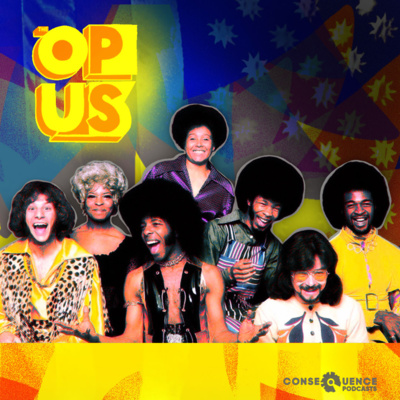
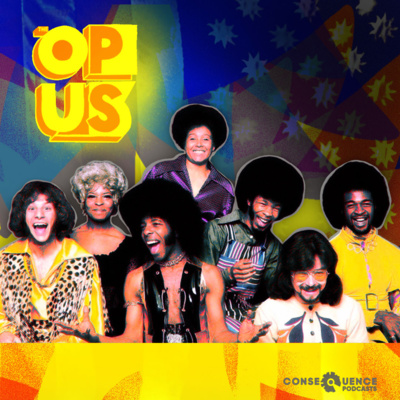
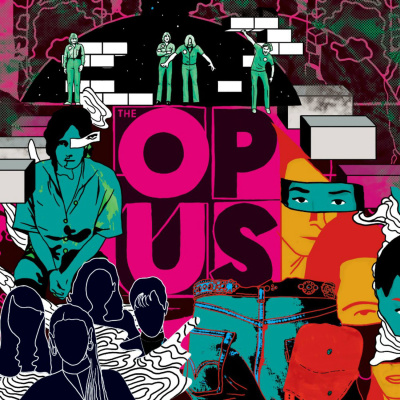
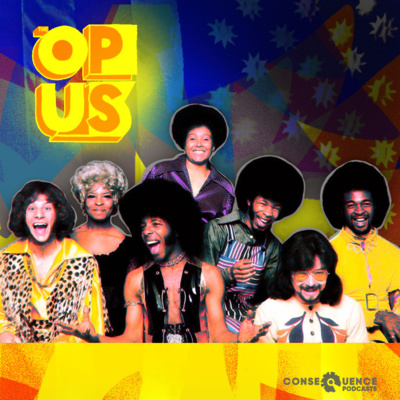

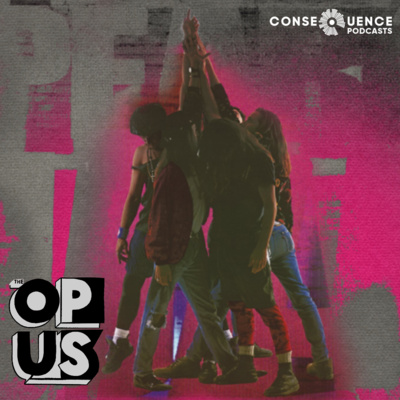

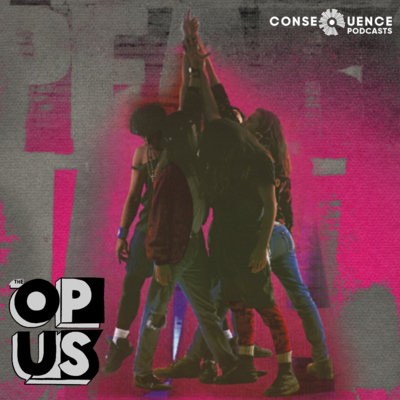
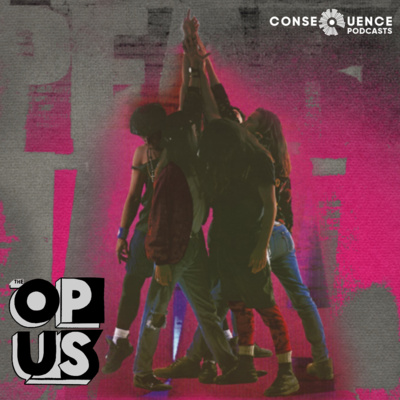




just downloaded the podcast, I have yet to listen but looking forward to it!
YES!! I love this record! and it couldn't have come at a better time!